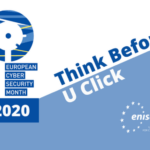The EU’s lack of measures and sanctions make interference an attractive tactic for foreign actors, says the committee on foreign interference and disinformation.
On Tuesday, MEPs finalised 18 months of inquiry by the Special Committee on Foreign Interference (INGE) and adopted its final recommendations.
The European public and government officials are “overwhelmingly” unaware of the severity of the threat posed by foreign autocratic regimes, in particular Russia and China, MEPs say in the text. Insufficient defence made it easier for malicious actors to take over critical infrastructure, carry out cyber-attacks, recruit former senior politicians and propagate polarisation in the public debate. This is exacerbated by loopholes in legislation and not enough coordination between EU countries.
Counteraction
To counter the threats, INGE members urge the EU to raise public awareness through training for people in sensitive functions and general information campaigns. In addition, the EU should beef up its capabilities and build a sanctions regime against disinformation. Rules on social media platforms, which serve as vehicles for foreign interference, have to be tightened, too.
In addition, the committee recommended the following:
- support broadly distributed, pluralistic media and fact-checkers;
- make online platforms invest in language skills to be able to act on illegal and harmful content in all EU languages;
- treat digital election infrastructure as critical;
- provide financing alternatives to Chinese foreign direct investment used as geopolitical tool;
- clarify “highly inappropriate” relations between certain European political parties and Russia;
- ban foreign funding of European political parties;
- urgently improve cybersecurity, classify and register surveillance software such as Pegasus as illegal and ban their use; and
- make it harder for foreign actors to recruit former top politicians too soon after they have left their job.
Source: European Parliament







Leave a Reply